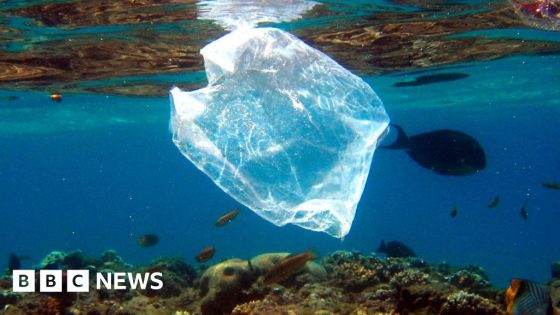Recent studies reveal that banning or charging for plastic bags is significantly reducing their presence on U.S. shorelines. Research conducted by climate and science experts shows that areas implementing these policies have seen a reduction of at least 25% in plastic bags as part of total litter collected, compared to regions without such measures.
- Banning plastic bags reduces shoreline litter.
- Policies more effective at state level.
- Overall plastic bag presence still increasing.
- Study analyzed 182 policies and 45,067 cleanups.
- Global plastics treaty negotiations ongoing.
- Comprehensive solutions needed beyond bag policies.
Data from thousands of cleanups between 2016 and 2023 highlights the effectiveness of these policies, particularly at the state level. However, despite these positive Trends, the overall number of plastic bags found across the U.S. continues to rise, suggesting that while local efforts are making a difference, the broader issue of plastic pollution remains daunting. This study underscores the need for comprehensive solutions beyond just bag bans.
This research raises an important question: Are current policies enough to combat the growing plastic crisis? While local laws show promise, they only address part of the problem. Consider these points:
- Policies are more effective in areas with a higher baseline of litter.
- Plastic bags account for 4.5% of items collected in cleanups.
- Overall plastic pollution is still increasing, despite local successes.
- A global plastics treaty could provide a more comprehensive solution.
As we move forward, it’s crucial to advocate for stronger policies and broader strategies to tackle plastic pollution comprehensively. Every effort counts in making our shorelines cleaner and healthier.





























